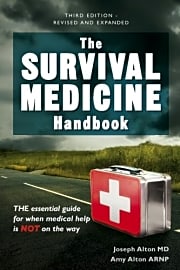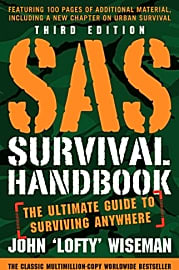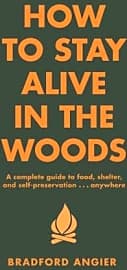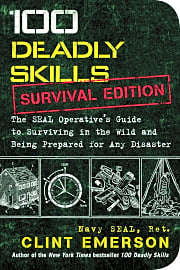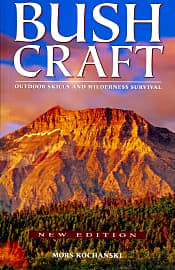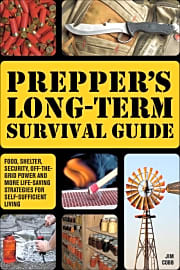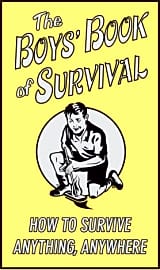The 10 Best Survival Books

This wiki has been updated 38 times since it was first published in December of 2015. "By failing to prepare, you are preparing to fail," said Benjamin Franklin, who could have been talking about these survival books. Whether you're a doomsday prepper or you just want to be ready in the event of a disaster or emergency in the wilderness, one of these educational guides will provide you with the requisite knowledge to build a shelter, treat an injury, and find your way home. When users buy our independently chosen editorial recommendations, we may earn commissions to help fund the Wiki.
Editor's Notes
March 26, 2020:
The right survivalist book is going to have a lot to do with the conditions of the situation you need to survive. We believe that the best of these tomes are small and light enough to be carried with you comfortably, either in a pack or a pocket, so you can keep them on you in the wild. The newest member of our ranking, U.S. Military Pocket Guide, is one such edition, with a wide range of useful expertise packed into a tiny manual. Whether its evasion and recovery sections will apply to your camping trips is another matter altogether, but those tools can even help you get away from animals that might be stalking you with a high degree of intelligence.
On the opposite end of the spectrum are books that are too unwieldy to be sensible purchases, like The Ultimate Survival Manual, which was removed from this version of the list for that reason. It's designed largely as a quick reference, but you'd have to use it more like a memorization tool if you wanted to make good use of its contents. Bushcraft 101 and Bush Craft: Outdoor Skills and Wilderness Survival, however, get away with their size due to the fact that they're more experiential reads you can absorb and take out into the field with you, perhaps with a little backyard practice.
And, as always, be careful out there. Some of these books will challenge you to push yourself harder than you may be ready. You may not be able to have a chopper come lift you out and take you to a hotel like Bear Grylls can, but having a backup emergency radio that you choose to ignore until you absolutely need it might be a smart move, so at least you'll have an escape valve if things get hairy.
The Power Behind A Survival Book
Studying survival skills with a top-grade manual can end up saving your life if ever faced with a dire circumstance in a secluded area.
Sleeping inside dead camels to escape the elements, or eating giant spiders for sustenance does not always merit your own TV show, like Bear Grylls, but you can learn similar skills and apply them in the real world to better prosper in the wild, and lessen the likelihood of becoming a SAR (Search and Rescue) statistic.
Studying survival skills with a top-grade manual can end up saving your life if ever faced with a dire circumstance in a secluded area. You never know when that spontaneous moment might strike, but when it does, you sure will be prepared.
That's not to say that survival books strictly lean towards the life or death scenario spectrum; these books in general are geared towards educating people on what to expect in nature, and how to use nature as a resource. When you're unsure of where or how to setup your campsite, or need to locate an edible root, or need to produce a compass using the accessories on you, survival books will typically have the answers for you, or if anything, guide you to find a suitable solution.
While not everyone will find themselves in an actual survival-based setting, having the knowledge to camp with little resources, and survive, becomes a reward of independence. Survivalist skills teach you determination and resourcefulness that help you succeed in everyday situations, because as they say, "the more prepared you are, the less scared you are."
Are All Survival Books The Same?
Not all survival books are created equally. Some are more area specific rather than composing of just tips and guides. These may include books pertaining to strictly building shelters, or how to locate and facilitate medicinal plants. On which book to chose relies solely on your wants and needs, and maybe even your learning style.
You can expect to find some form of illustrations in your survival book. Many are colored for easily identifying wilderness plants and animals you're likely to come across. Illustrations in color also help to avoid miscommunication when you are designing a trap that could lead to a failed attempt or injury, for example. If you are beginner survivalist, you also want a book that has been written in layman's terms for easy understanding.
And if the book has been written by an actual survivalist specialist, the better. Generally these people have dedicated a large portion of their life studying nature and learning to live off the land. Their first hand accounts can help prepare you for the unexpected which can in the end help you meet your survival goals.
A Compressed History on the Survival Book
Long before Bear Grylls reached every household, and prior to publications of survival books, key survival ideas were passed via word of mouth, mostly exaggerated, about men living in the wild. Perhaps you've heard of a few household names, including the unsung western hero Kit Carson, the Appalachian frontiersman Daniel Boone, and the California bear tamer himself, John "Grizzly" Adams.
Though these men surveyed America during the 1800s western expansion, there was no real survivalist movement until the 1930s, when the threat of nuclear war first became a reality.
In the present day, many TV shows have capitalized on the survivalist beliefs at the expense of reality stars, which in turn fuels the popularity of survivalist books.
Even then, the first real survivalist books didn't hit shelves until thirty years later, in the late 1960s, when the rivalry between the United States and the Soviet Union seemed palpable. But, even then again, these survival books were heavily influenced by the possibility of a complete break down of society, rather than the leisure of enjoying nature.
Such examples are seen with Harry Browne, who first started giving seminars on how people could survive a monetary collapse in 1967. After that, Don Stephens, regarded as a founding father of modern survivalism, wrote many books pertaining to learning to cope and live in the world if disaster would strike.
During the 1970s, the survivalism movement took on a new flavor where it focused on the oil crisis of 1973. A lot of the survivalist reading material of this time focused on food storage. The 1980s saw a revival of the rivalry between the US and Russia over the nuclear arms race, and as a result, Ragnar Benson suggested living off the land in rural areas in 1982 with his popular book "Live off the Land in the City and Country."
In the present day, many TV shows have capitalized on the survivalist beliefs at the expense of reality stars, which in turn fuels the popularity of survivalist books. If there's an end to the fade, it's not in sight just yet.



